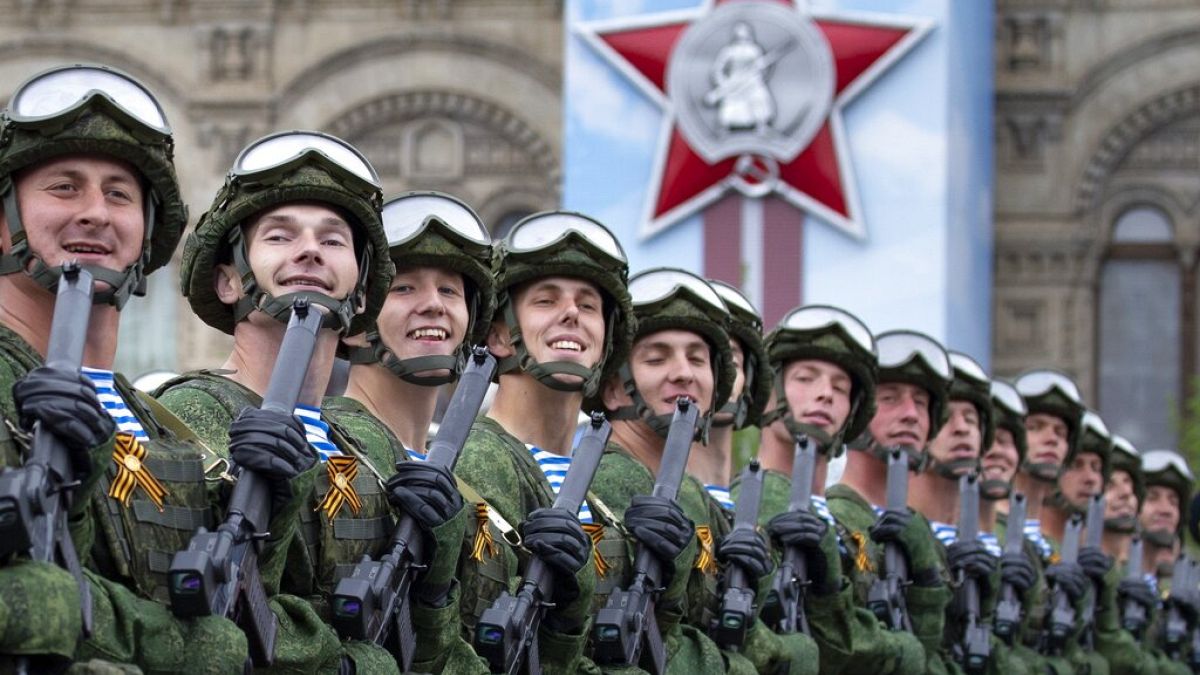The explosion in defence spending illustrates Moscow's determination to continue its assault on Ukraine despite the significant human and economic cost.
Russian lawmakers backed a record increase in military spending to fund Moscow's offensive on Ukraine, in a first reading of the bill Thursday.
Defence spending will account for almost a third of all outlays in 2024 -- up 68 per cent to 10.8 trillion rubles (€109 billion).
At more than six per cent of the country's GDP, military spending will hit its highest share of the economy since the collapse of the Soviet Union.
Moscow has already spent tens of billions of dollars on ammunition, missiles, tanks, drones, equipment and soldiers' salaries since it sent troops into Ukraine in February 2022.
President Vladimir Putin has doubled down on the offensive, as the economic and human costs of Moscow's 20-month campaign continue to mount.
Overall government spending will rise more than 20 per cent next year to 36.66 trillion rubles ($391 billion), according to the budget proposals.
The defence funding increase was included in the spending plans for 2024-26, which State Duma lawmakers voted to approve.
'Everything for the front'
According to Russian defence minister Sergei Shoigu, Russia uses up to 15,000 tonnes of materials -- including ammunition and fuel -- every day in its offensive against Ukraine.
Before the vote on Thursday, finance minister Anton Siluanov told lawmakers the proposed budget was "aimed at today's main task -- ensuring our victory."
Some lawmakers echoed Soviet-era World War II slogans in their endorsements of the ramp-up in spending.
"Everything for the front, everything for victory," said lawmaker Leonid Slutsky, who heads the Duma's foreign affairs committee, quoting a 1940s wartime propaganda message.
The Russian economy has become increasingly militarised throughout the 20-month offensive.
"The war has become existential for the Russian economy because a big part of demand is now spread through the expanded military-industrial sector," Alexandra Prokopenko, a former adviser at Russia's central bank, told AFP.
The Kremlin said such a significant spending increase was essential in the face of Western support for Kyiv.
"It is obvious that such an increase is absolutely necessary because we are in a state of hybrid war," Kremlin spokesman Dmitry Peskov told reporters earlier in October.
Lawmakers voted 320-80 in favour of passing the budget Thursday.
It will pass through two more readings in Russia's rubber-stamp lower chamber, before going to the upper house for approval and then to Putin for signing.
The budget also includes funds for the "integration of new regions" -- financial support for the four Ukrainian regions that Russia said it was annexing last year.
Despite Western sanctions, Russia has continued to earn huge sums of revenue through its vital oil and gas exports, which it has reorientated away from Europe to the likes of China and India.
The government has also benefited more recently from a weak ruble, as it means the Kremlin earns more on its exports.
In its budget forecasts, the finance ministry sees the ruble at 90 against the dollar. The currency was trading Thursday at 93.5.
But the ruble's volatility has stoked inflation at home and the central bank has hiked interest rates to 13 per cent in a bid to cool rapid price rises.
The planned surge in government spending "is inflationary, no matter how it is financed," said independent economist Victor Tunyov.
"The increase in defence spending is mainly an external shock to the economy," he added.
Russia has swung to a budget deficit since it launched its military offensive in Ukraine, forcing the finance ministry to increase borrowing from state banks and sell some foreign currency reserves.
